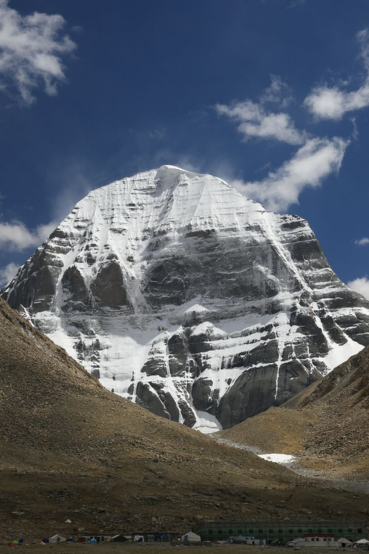The scent of fresh incense hangs in the air. Drums beat out their rhythmic pattern. Men and women dress in traditional attire as they dance and chant and worship nature. In Nepal's remote eastern hills, a holy thing stirs every spring. It's called Ubhauli Parva, a festival of movement, mystery, and meaning.
Nepal is not just snowcapped mountains and trekking trails. Its heartbeat is ancient customs, in festivals that passed down stories from generations to generations. Among them, the Ubhauli festival of Nepal is special, not just as a ritual, but as a step back in time. Celebrated by the Kirati community mainly, Ubhauli has deep spiritual value. It is seasonal migration of human beings and prayers, a physical as well as symbolic upward journey.
This is not a festival to watch. It's one to experience. It teaches you how Kirati culture respects the land, sky, ancestors, and all living beings. The Ubhauli rituals, songs, and dances whisper stories of survival, respect for nature, and a way of life that was centered on harmony with the earth.

For tourists who want to see Nepal's cultural festivals, there's no travel experience quite like traveling to Nepal during Ubhauli. Unlike the tourist-crowded events in the cities, this is one of those unique Nepali festivals that still feels untouched, deeply personal, and full of raw emotion. Visiting Nepal in the spring means stepping into a world that few get to see—one where nature and culture dance as one.
Ubhauli isn’t just an event. It’s a cultural doorway into the soul of Nepal. And for those willing to look beyond the mountains, it’s a chance to witness a living story told in drums, devotion, and the footsteps of people moving upward—toward the skies and toward something greater.
What is Ubhauli Parva?
Every culture has its beat—its own rhythm of moving with the seasons. In Nepal's hills to the east, Nepal's Ubhauli festival is such a time. It is celebrated by the Kirati people, but Ubhauli is more than a festival. It's a ritual, a prayer, and a pilgrimage all mixed.

Ubhauli Parva is a festival of seasonal migration, embedded in the life of Kirati people. "Ubhauli" means "to move upwards." As spring arrives, the Kiratis start their symbolic and literal journey towards the higher hills. The upward migration symbolizes their traditional life close to nature and the seasons.
But Ubhauli is more than geography. It's Thanksgiving. During this time, the Kirati people give thanks to nature for having protected them through the winter and pray for a good harvest in the months ahead. The festival is a mix of spiritual rituals and practical sense—showing respect to the land that feeds them and the ancestors who guide them.

The songs are sung. Ancient dances like Sakela fill the vacant space. The elders perform prayers, and villagers come together in a colorful celebration. It's a time to connect—not just with each other, but with the ground, air, and spirits around them.
And then, of course, there's this beautiful reconciliation of Kirati tradition. Just as Ubhauli represents the ascendant quest during springtime, its accompanying Udhauli occurs during winter when humans revert downward to lower valleys. And taken together as a pair of celebrations, the two festivals comprise a cycle—a metaphorical representation of nature's pattern to life and also of the overwhelming veneration Kirati people possess for the place they inhabit.

For those seeking to experience the unique Nepali festivals, Ubhauli allows an unwatered, original glimpse of the Kirati tradition and spiritual heart of the hills. To merely visit Nepal would not be nearly enough—anyone wanting to actually experience Nepal should travel to Nepal during Ubhauli. There is the possibility to walk beside a tradition whose rhythm matches with the earth itself.
Ubhauli and the Hills
When the sun's heat intensifies and Earth is brought alive with flowers, something divine begins in eastern Nepal's hills. It's Ubhauli, a festival, not just a festival of joy but one of abiding by nature's beat. For Nepal's Kirati tribe, the Ubhauli festival is a sacred journey that takes them up, spiritually as well as in residence.
Ubhauli marks the seasonal migration to higher terrain. At the start of summer, the Kirati community starts preparing to move away from the lower valleys towards the hills. The migration is not just practical—it's symbolic. It's a season of new beginnings, new crops, and reflection. Amongst Nepal's cultural festivals, Ubhauli is possibly the most terrestrial, upholding the bond between humans and the earth.

The carnival is brought to life with vibrant rituals. Perhaps the most vivid one is the Sakela dance. Men and women in open grounds put on traditional Kirati attire—vibrant skirts, white scarves, feathers, and ornaments—and form circles by joining hands. They dance together to the beat of dhol (drums) and jhyamta (cymbals), their movements mimicking planting, harvesting, and blessings of the earth. Every movement holds meaning. Every rhythm is a prayer.
Ask the residents, and they will tell you: Sakela is more than a dance. It's a way to remember the ancestors, to thank nature, and to gain protection and blessings.
One tourist, Maya from Germany, once had this to say: "I didn't expect to be pulled into the circle, but when I was, I did feel something eternal—like I was part of something larger. People's warmth, dance energy. It followed me for a long time after the festival."

That's the magic of visiting Nepal during Ubhauli. You don't just watch—you join in. You feel the earth under your feet, hear the stories in the songs, and see a culture that dances in harmony with the earth.
Among all the offbeat Nepali festivals, Ubhauli invites you to climb—not just the Nepali mountains, but into the heart of a living tradition that continues to hold sway in the people even now.
Why visit Nepal during Ubhauli?
If you want more than a sightseeing experience while you're traveling Nepal, and you're willing to travel during Ubhauli, you'll find it's an experience like no other. Sure, most people visit for the mountains and adventure, but few ever get to experience the heart and soul of Nepal—the part that resides within its festivals, music, and ancient traditions. That door opens during the Ubhauli festival in Nepal.
Partially observed by the Kirati people, Ubhauli is a chance to access a world that is at once nature, culture, and spirituality. It's one of those untouched Nepali festivals yet to be commercialized and so is perfect for tourists seeking true cultural experiences.

To be a part of this vibrant celebration, head to Nepal's eastern hilly districts—specifically Hile, Dhankuta, Bhojpur, Khotang, and the Kathmandu Valley, where the Kirati people are in the majority. You will not only witness the festival—you will live it.
All cultural tours during this period offer enriching experiences, including the local homestays where you'll be invited into Kirati households. You'll dine with them, hear their tales, and taste local delicacies prepared just for the occasion. You have a good chance of being invited to a local celebration party, where the air is filled with the aroma of millet beer, roasted meat, and crisp mountain greens.

One of the highlights of the traveler is being able to join the Sakela dance, or at least observe it up close. Locals will typically invite the visitor to join in, showing them the slow, rhythmic steps in a large circle. It's not just fun—it's also poignant. To observe or join the dance while drums echo across the hills makes you feel like part of something ancient and important.
By visiting Nepal during Ubhauli, you depart from the tourist trail and into the heart of Kirati culture. It's not just a holiday. It's an experience that will forever be etched in your memory—a story told in movement, cuisine, laughter, and the spiritual heartbeat of the earth.
A Festival That Honors Nature
Nature is not only revered in Nepal – it is respected, honored, and celebrated. The Nepalese Ubhauli festival is a case in point. Performed based on Kirati culture, Ubhauli is not just about seasonal migration but about expressing thanks to the earth, making appeals for fruitful harvests, and gratitude to the environment that makes us live.
What makes Ubhauli stand out among Nepal cultural festivals is its deep eco-spiritual message. This is a celebration where people gather to perform rituals, offer blessings to nature, and remind themselves of their duty to live in balance with the land. As the world slowly wakes up to the concept of sustainability, the Kirati have lived it for centuries.

If you care about nature and you'd like to travel responsibly, a tour to Nepal during Ubhauli is the option. It's not about visiting pleasant places, it's about living and learning something unique. Everyone wears clothing made of natural fabrics, sow seeds to repay nature, and dances together to celebrate farming and life. There's no garbage and nothing fancy, just a strong, genuine bond with earth.
Conclusion
Travelling to Nepal in Ubhauli to experience a once-in-a-lifetime experience. When the hills themselves come alive to the rhythm of folk music and vibrant dances, you can feel the deep love of the Kirati people for their land. Be prepared to be warmly welcomed and to be greeted with open arms as you join the Sakela dance or observe serious rituals. This is a time when people come together to give thanks to nature, celebrate the changing seasons, and honor their ancestors.

You'll find yourself immersed in the actual rhythms of rural life, with breathtaking natural scenery all around. From colorful festivals in Bhojpur, Khotang, and Dhankuta, to village parties that introduce you to local Kirati food, there's simply so much to savor. You can anticipate being invited into homes for a hot meal, where the flavor of the area, including millet beer and roasted meats, will make you feel like part of the family.
Ubhauli isn’t just a festival; it’s a cultural journey. Whether you’re participating in the dance, observing the rituals, or simply enjoying the serene beauty of the hills, you’ll leave with memories that will last a lifetime. If you’re looking for a travel experience that offers more than just sightseeing, Ubhauli is the perfect time to visit Nepal.
Photos from: english.khabarhub.com








